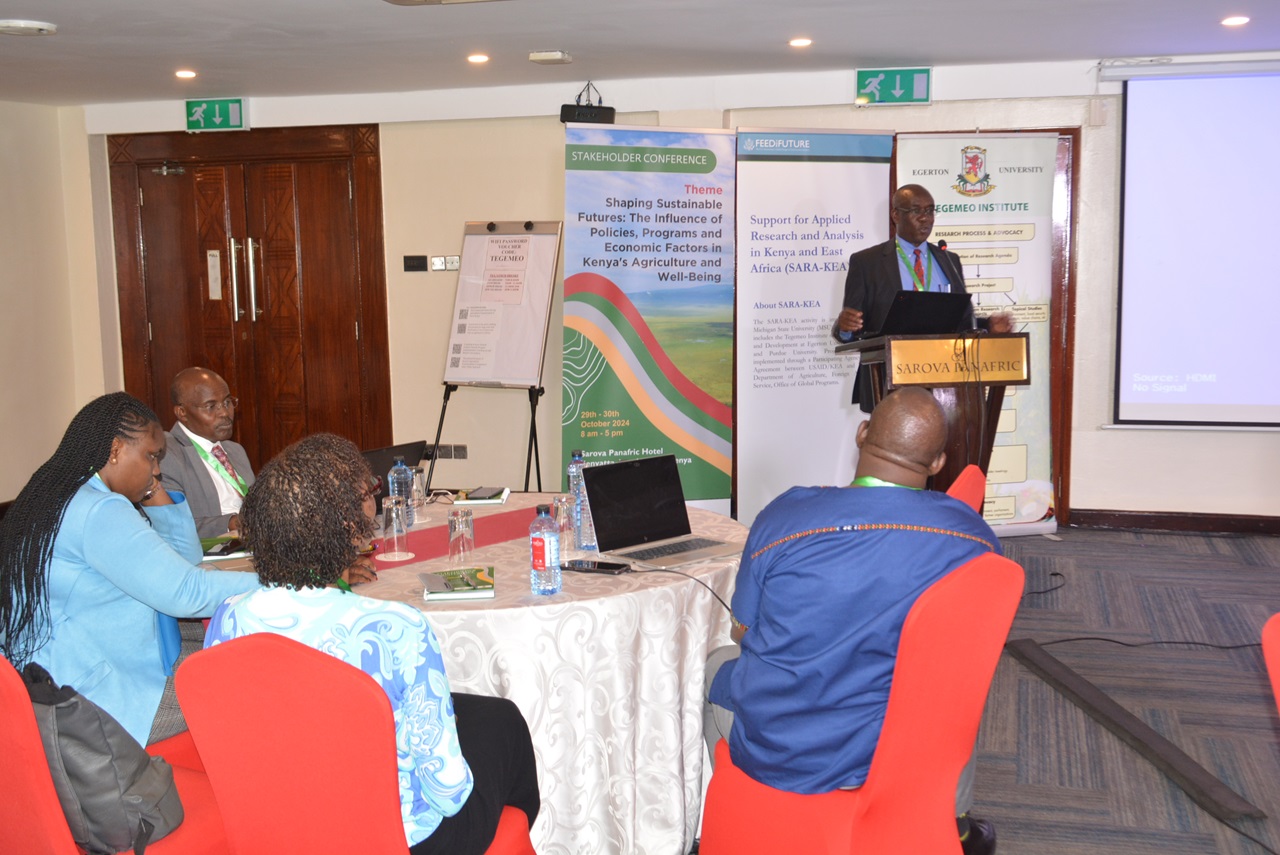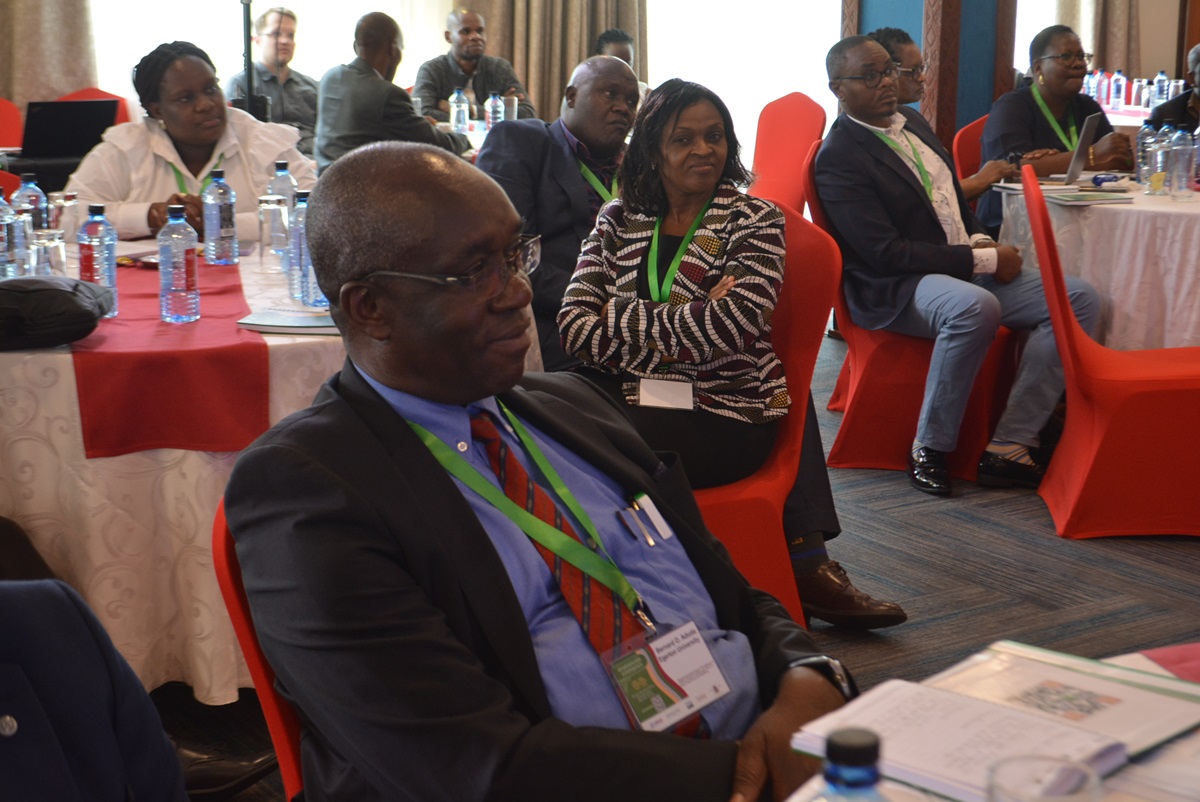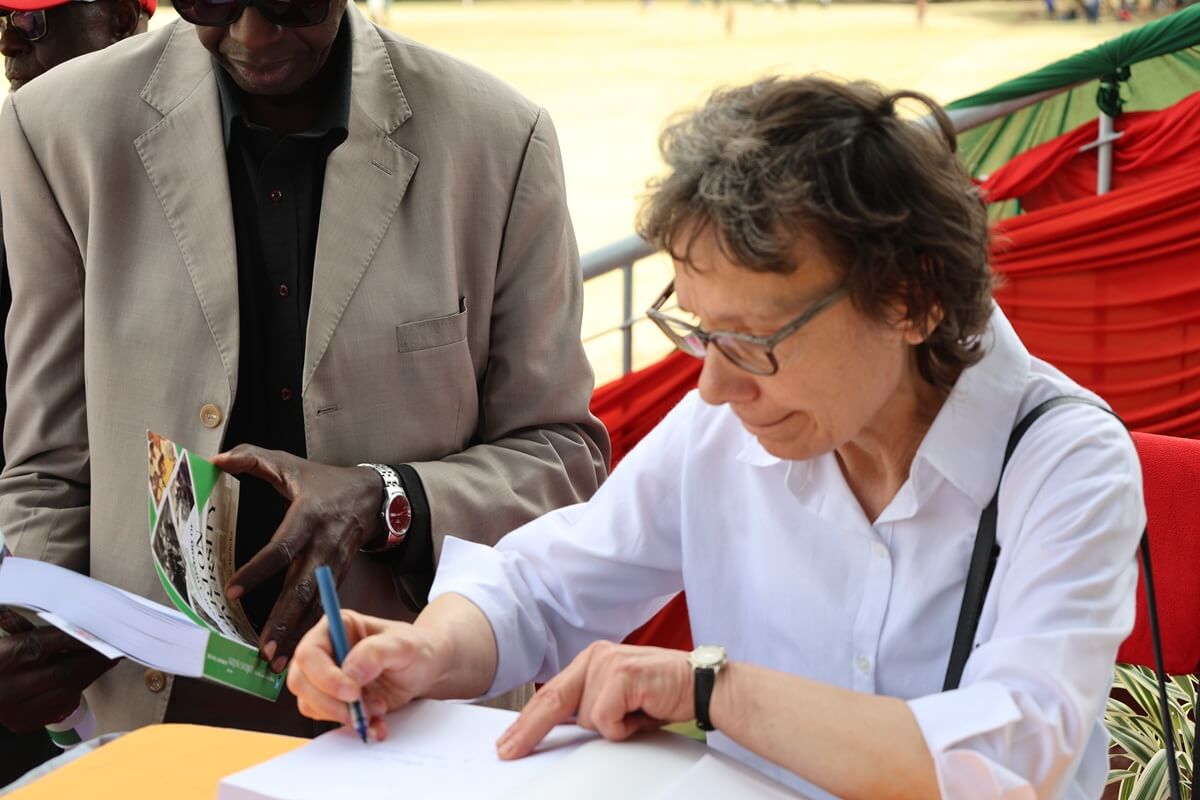Nairobi — In a significant step towards enhancing the role of agricultural education and research in Kenya, Prof. Bernard Aduda, the Deputy Vice-Chancellor of Egerton University, officially closed a two-day conference hosted by Tegemeo Institute of Agricultural Policy. The conference, held at Egerton University, brought together experts, researchers, and industry stakeholders to discuss best practices in managing university farms and integrating academia with industry demands.
Reflecting on the diverse discussions, Prof. Aduda highlighted key lessons he had gained from the conference. “One speaker spoke of poorly managed university farms. I come from Egerton University, where we have the TAP farm,” he remarked. “The farm has been undergoing improvements after we realized that we needed high-end dairy and beef cattle to take to the ASK Show in Nakuru and compete with others.” This comment underscored Egerton University’s commitment to elevating its agricultural outputs and fostering an environment of excellence and competitiveness.

Throughout the conference, participants explored a wide range of topics, including meteorology, soil health, mechanization, and multidisciplinary approaches to agricultural production. Prof. Aduda noted the importance of integrating these insights across various academic disciplines, such as physical and social sciences, to strengthen agricultural education and practice.
“This has been a big learning experience,” Prof. Aduda expressed. “From the Meteorological Department to soil health discussions and other multidisciplinary areas, the knowledge shared here can drive our goals to improve agricultural practices.”
Emphasizing the need for greater collaboration, he extended an invitation to researchers and experts to engage with Egerton University’s laboratories and explore joint projects. “Kindly visit us in the laboratories so that we can find areas where we can work together,” he urged. Prof. Aduda also encouraged stakeholders to assess and provide feedback on the university’s curriculum to ensure it meets the demands of the job market. “Kindly critique the curriculum and make necessary recommendations to improve the education we give our learners,” he added, underscoring the university’s mission to produce market-driven graduates ready for industry challenges.
At the closing ceremony, Tegemeo Institute Director Prof. Obare commended the active participation and shared outcomes of the conference, emphasizing that the results will be communicated to all stakeholders. “We are grateful to all our stakeholders, regulators, the County Government of Makueni, and especially the Egerton University Management, led by Vice-Chancellor Prof. Isaac Kibwage, for their unwavering support,” said Dr. Olwande, acknowledging the instrumental role of the university’s leadership in making the event a success.
Prof. MyWish from Michigan State University expressed appreciation for the collaboration led by Tegemeo Institute and acknowledged the dedication of Dr. Olwande. “Since we began working on the proposal for this conference, Dr. Olwande has been incredibly supportive,” she noted. “This is the true definition of localization, where local experts take a leading role in meaningful change.”
The conference closed on a hopeful note, with renewed commitments to bridge the gap between academia and industry, advance research in agricultural policy, and improve the management and outputs of university farms. The event highlighted Egerton University’s dedication to strengthening its agricultural programs and fostering a culture of collaboration that leverages research to address pressing challenges in agriculture and food security in Kenya.
By Kurian Musa
Communications Officer
Directorate of Marketing and Resource Mobilization







